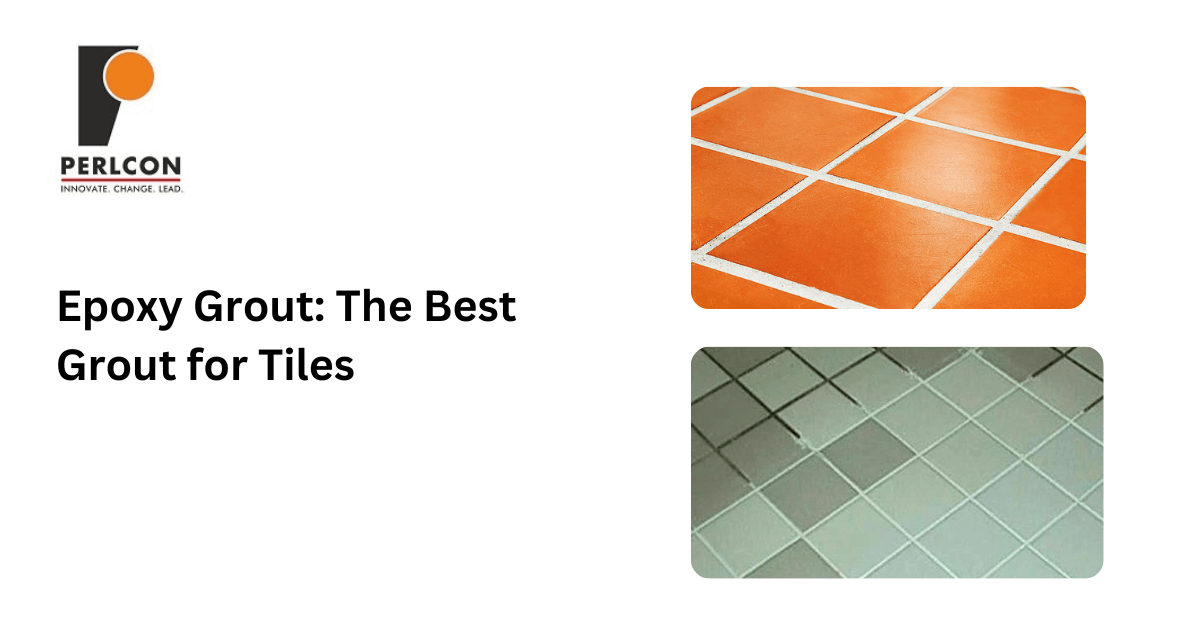Modern construction cannot be completed without tiling. It makes up a sizable portion of all residential, commercial, and construction projects. Any room looks ultra-chic thanks to the tiled walls and flooring. Grouting is the process that comes next and is crucial after the tile installation process. This blog focuses on choosing the best grout for tiles and how epoxy grout is evolving into one of the choices that contractors and installers favour the most.
What does grout in construction mean?
To begin with the fundamentals, grouting is the act of filling the spaces between the tiles to strengthen and increase the durability of the tiled building. Choosing the appropriate grout for your tiles will therefore increase the overall durability of the tiled surface.
What different types of grouts are there?
With so many alternatives on the market, selecting the best grout can be difficult. The following factors can be taken into account while selecting the ideal grout for tiles.
You can also read : Tile adhesive vs Cement: What are the Pros & Cons?
Grout for tiles can be roughly categorised into three types:
- Grout made of cement.
- Epoxy grout.
- PU grout.
Grouts made of cement:
Pre-pigmented, premium polymer-modified tile joints use cementitious grouts. They properly close the gaps and level them to produce tile joints that are durable and dust-free. Naturally occurring stones, fully vitrified tiles, ceramic tiles, and porcelain tiles can all be grouted with cementitious materials.
Epoxy Grout
Traditional cement grouts are being swiftly replaced with epoxy grouts as a more efficient, practical, and long-lasting alternative. Epoxy grouts with high performance fill the spaces between the tiles to enable effective and trouble-free tiling.
Cementitious grout has a number of drawbacks that epoxy grout can effectively address, including:
● Cementitious grouts have a high moisture absorption rate, which is transferred to the screed (tile-based mortar).
● The cementitious grouts are harmed while cleaning the surface because of their reduced strength.
● Screed and tile joints deteriorate over time when they are cleaned often with acidic solutions.
PU Grout
PU grout is a revolutionary, one-component, ready-to-use, high-performance tile joint filler made of resin. When used properly, this tile grout can offer stain resistance, durability, flexibility, and colour consistency. Suitable for joint widths ranging from 1 mm to 8 mm in both interior and external environments.
How do I pick the best tile grout?
Grouts have an important role, as was previously noted. Your tiled surfaces’ robustness and attractiveness will be enhanced by your choice of grout.
Here are a few factors that everyone should take into account while selecting the best grout for their tiles.
The goal of grouting is:
Grouting may be done for a variety of reasons, including improving a space’s appearance, increasing the tiled surfaces’ durability, and promoting hygiene.
Grout aesthetics are important when choosing, especially with the broad range of colours and added features like glitters or neon glows that are currently on the market. The majority of hygienic requirements are found in hotels, commercial buildings, etc.
Choose the appropriate colour:
Depending on the idea and style you have in mind, the grout colour might be in contrast or have similar tones. If you want to look embossed or dramatic, you would choose contrast colours, however, if you like a more sober and elegant appearance, you would choose matching shades. Whatever your preference, epoxy grouts come in a wide range of colour options.
Application areas
For internal settings, any type of grout can be used, but when choosing grout for external conditions, it’s crucial to pay attention to factors like temperature resistance, discoloration, durability, long-lasting qualities, etc.
Service’s expected lifetime
Depending on where the grouting is being done, the life expectancy of the grout is a crucial consideration. Other elements include chemical resistance and mechanical characteristics. When the surface is subjected to movement, especially in places like swimming pools, podiums, warehouses, commercial buildings, etc., abrasion resistance is crucial.
Why use epoxy grout for tile?
Epoxy grouts operate well in high-performance environments, such as homes, businesses, and water containment structures like swimming pools. Epoxy grouting is perfect for wall and floor tiling as well as kitchen backsplashes because of its moisture- and stain-resistant qualities.
When epoxy grouting is exposed to environmental variables, it does not deteriorate, expand, or contract. Epoxy grout is increasingly used in the residential, commercial, and hospitality sectors due to its durability, strain-free nature, and low maintenance requirements.
Epoxy grout is simple to clean and offers good resistance against common household pollutants. ensures that hygiene standards are met and prevents bacterial growth.
Conclusion
Perlcon has established itself as a leader in the epoxy grout market and offers a variety of high-tech epoxy tile grouts that improve the appearance of walls and floors and maintain them for decades. For heavy-duty applications, Perlcon epoxy grout is utilised as a chemically resistant joint filler.
The finest product to use when going for a glam look is Perlcon epoxy tile grout. It comes in a range of hues and is used to fix all kinds of tiles and stones. It is highly advised to grout quickly. It works with all kinds of tiles and stones. It is especially advised for places that need sterile conditions and are sensitive to cleanliness. Perlcon Epoxy Grout is quite useful and raises the project’s style factor.
Don’t Forgot To check: How Does Epoxy Grout Differ from Cement Grout?


